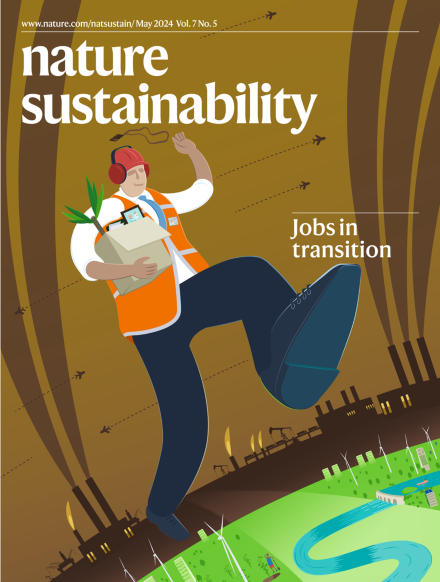
Our May issue is now live!
This month we feature a Focus on jobs and sustainability, groundwater vulnerability in Africa, sustainable metabolic cancer diagnosis, green hydrogen production and more.

This month we feature a Focus on jobs and sustainability, groundwater vulnerability in Africa, sustainable metabolic cancer diagnosis, green hydrogen production and more.
